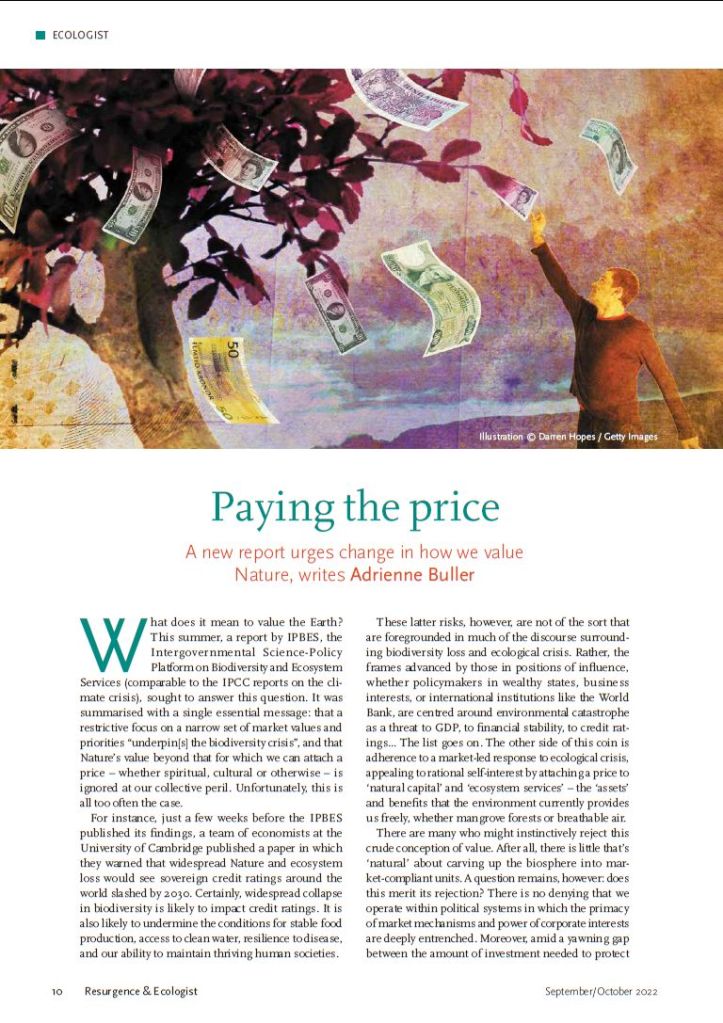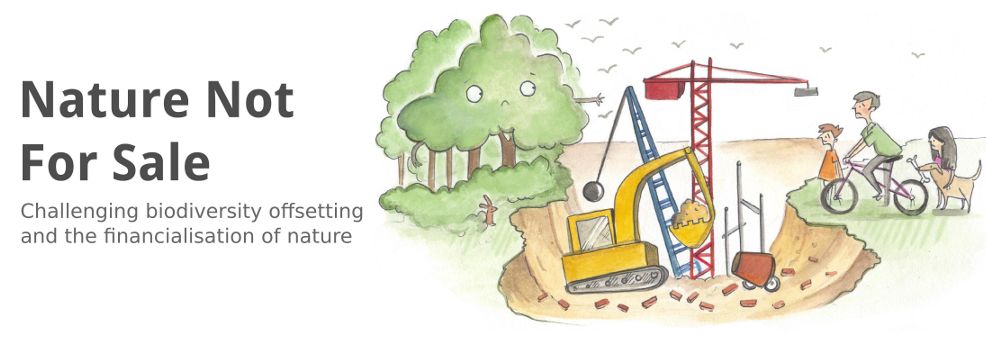
[Update, September 2022:
The September/October 2022 issue of Resurgence and Ecologist featured an article by Adrienne Buller criticising ‘ecosystems services and natural capital accounting’. I post a short extract at the bottom of the page.
[Update, April 2021:
This Russell Brand/Vandana Shiva video is relevant to the natural capital debate as well as the topic of restorative climate justice. https://www.youtube.com/watch?v=gmEc7_jV3j0 ]
[Update, January 2021:
An employee of Ethical Consumer informed me of this excellent summary of the issue on the New Economics Foundation website. I have included a short extract near the bottom of this page, but I think you’ll find the whole short article well worth reading. Note my caveat re what it says about the Green New Deal, however!]
[Update, July 2020:
I have added as a reference a compelling recent interview with Survival International Director Stephen Corry on Gorilla Radio. You’ll find this new reference near the bottom of this page.]
[Update, June 2020:
1) Earth in Common has come up with the phrase ‘restorative climate justice’ to convey the importance of indigenous cultures’ approach to the biosphere, which is antithetical to the reductionist, utilitarian, extrinsic values-based one of the ‘natural capital’ approach.
2) Very sadly (I am devastated!), the once proudly ethical Triodos bank is now supping from the seductive poisoned chalice of the ‘natural capital’ approach. I hope the trustees will have the open-mindedness and wisdom to recognise their error.]
_____________________________________________________________________________________
I have touched on the topic of ‘natural capital‘ before. At a time when we are experiencing catastrophic loss of biodiversity and are arguably already at the tipping point when it comes to climate change, I feel compelled to raise it again. The superficially seductive notion of financialising and commoditising natural ‘resources’ and ‘ecosystem services’ (supposedly to make people appreciate how valuable they are) is potentially a fatal attraction at this critical time. We cannot afford to make the mistake of going down this route; we might never recover.
Rather than write at length on ‘natural capital’ myself, I thought it might be more useful to compile some references and resources on the topic. However, I shall first outline three of my related thoughts and concerns.
(1) The subtle and pernicious influence of words
We should be mindful of the connotations of the words ‘nature’ and ‘environment’. Used without thought, these deceptively innocent terms serve to perpetuate the often-subconscious false belief which arguably lies at the root of many of our problems: that man is outside ‘the natural world’.
The belief that we have a separate existence, and that nature is an ‘externality’, fuels the conviction that we can use it as we see fit. Part of the ‘galvanising alternative philosophy’ called for by Bruce K. Alexander must include the notion that we are part of the biosphere, not separate at all, and I am attempting to develop a version of such a galvanising alternative philosophy (as all of us should be) which I suggest might be called ‘biosphere-ism’, for want of a snappier term.
If the word ‘biosphere’ is unfamiliar, this reinforces rather than weakens my argument; the need to raise awareness and change mindsets has never been more apparent. Children should grow up with this concept, and news bulletins should give regular updates on the biosphere rather than the stock market (and the former should not be subservient to and subsumed by the latter, which is where the ‘natural capital’ notion leads).
(2) The importance of values and frames
We cannot begin to have a sensible conversation about ‘natural capital’ without an understanding of values and frames, which is why the first reference below is a primer on these.
A few years ago I attended an event on global issues hosted by the erstwhile World Development Movement, now Global Justice Now. (It may well have been on ‘natural capital’.) An attendee related the story below, of which he said he had direct personal knowledge. I thought it might be a good ‘teaser’ for the topic of values and frames, and for that of ‘natural capital’ in general.

A forest remnant was surrounded by a monoculture commodity crop [I cannot remember which country this relates to, but I think the crop was coffee]. The indigenous people had preserved the pocket of biodiversity because it was sacred to them, i.e. it had spiritual/religious significance. Well-meaning environmental campaigners told them that the bees (and presumably other pollinators) harboured by the forest had an economic value as they boosted the yield of the crop. In time, this became the main reason for preserving the forest, the people losing their spiritual/religious rationale.
Unfortunately, the price of the commodity plummeted and it was replaced by a more profitable wind-pollinated one [I think it was maize]. Because the people had come to understand that the main/only value of the forest was economic – to harbour pollinating insects whose only value, in turn, was boosting the yield of the insect-pollinated crop (note that they had not even necessarily been told this in so many words) – the land on which the forest grew was now more valuable to them as fields on which to grow the wind-pollinated crop. The forest remnant was destroyed.
(It is also possible to imagine an embellishment of this story, in which the destruction of the sacred forest led to a drying up of the streams which allowed the agriculture in the first place. This sort of thing certainly occurs, as anyone who has seen The Salt of the Earth can testify.)
There are several lessons in this anecdote:
- It underlines the danger of undervaluing/disrespecting/losing traditional customs and beliefs. Their teleology is neglected at our peril, i.e. what may appear to be primitive superstition (e.g. the preservation of sacred groves, exogamy linked to a system of totems…) may actually serve a highly practical purpose (i.e. it has survival value) and have persisted largely for that reason.
- It flags the danger of short-term financial considerations taking precedence over others.
- It demonstrates the risk of over-reliance on the international commodities market. (Monoculture cash crops sold into this market are not a dependable source of income.)
- Related to the last two points, it also illustrates the danger of appealing to people on the basis of extrinsic values (in this case money) as opposed to intrinsic ones (in this case spiritual ones) – of framing things in terms of extrinsic values – as this can result in intrinsic values being supplanted by extrinsic ones, rendering people deaf/blind to appeals on the basis of the former: ‘No, I won’t donate to your campaign to clean up the neighbourhood because I need to save up for a flashy car to compete with my neighbour.’
The last three lessons very much relate to the concept of ‘natural capital’, as a glance through the reference material below should make clear.
(3) Why is the ‘natural capital’ approach so seductive?
I think the ‘natural capital’ approach appeals for several reasons. Probably not all of them will be relevant to any single advocate. (Wanting to think the best of people, I certainly hope not!)
(a) The appeal of the simplistic discipline of neoclassical economics
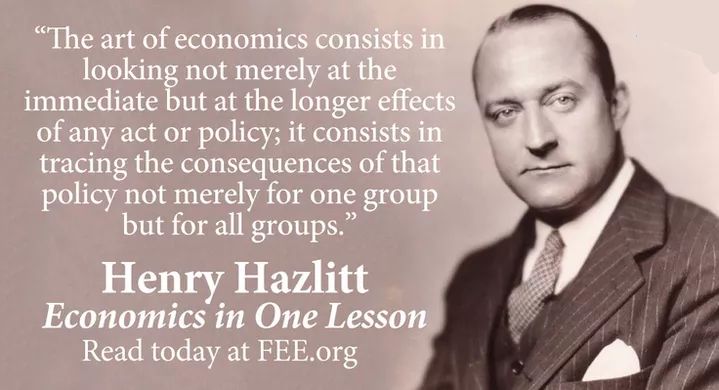
Neoclassical economics is a theoretical discipline, i.e. one which disregards the complexity of the real world. It supposedly predicts how people (and therefore markets) behave on the basis of the simplifying assumptions that people are inherently and predominantly self-interested (a dangerous – to some extent self-fulfilling – flaw, if one considers the impact of inequality on people’s mindsets) and ‘rational actors’ (a term with a strict definition in this context) with perfect knowledge (an obviously problematic assumption) of ‘the market’ (a problematic concept, as what is included or excluded is subjective).
Upon these flimsy foundations, vast edifices of influential doctrine have been constructed (including the particularly flawed one of neoliberalism, arguably ultimately responsible for the massive societal and ‘biospherian’ crisis we now face). Never mind that empirical evidence demonstrates the falseness of many of its predictions, neoclassical economics is impervious to this. It appears internally consistent, and tinkering with its parameters has great appeal for certain mindsets (dare I suggest ‘left-brained’, reductionist, ‘typically male’ ones?) Just like certain computer games, it gives one the illusion of being able to predict and solve problems – a false sense of knowledge, power and control – and its simple notions are relatively easy to convey.
I contend that for some, the appeal of the simplistic discipline of neoclassical economics is similar to that of the connected concept of ‘natural capital’.
(b) A desperate attempt to rein in the transnationals (large international corporations)
‘Well, nothing else seems to have worked. Let’s try to talk their language. That’s the only way to make them listen.’
This is an understandable and ‘decent’ motivation. However, when one appreciates the concept of values and frames, it becomes clear how perilous this line of thinking is. (You will find other powerful reasons for it being dangerous in the references below but, in short, those well-meaning environmentalists – ‘biospherists’ – who go down this route are like people who first touched a pack of playing cards a day ago and are now sitting down to high-stakes poker with seasoned professional players. What could possibly go wrong?)
(c) Financial motivations
For reasons which will be obvious soon after you start browsing the reference material, the ‘natural capital’ idea is supported by big business entities. Of course these entities have money at their disposal, and they would be happy to invest in directly or indirectly rewarding those organisations or individuals who go along with this project. Charities constantly need money. Tempting, then, to make oneself believe that what one is doing is for the greater good and not examine too closely the gift horse’s mouth… (It would be interesting indeed to look into the funding of the supposedly environmental organisations that support the ‘natural capital’ idea.)
(d) Ego, status and power: rubbing shoulders with the big boys
How exhilarating to be jetting around the world, rubbing shoulders with important, ‘successful’ and powerful people – billionaire CEOs, the Gates-Monsanto-Bayers of the world – and be treated like one of them: someone who really counts, a mover-and-shaker on a grand stage, a far-sighted visionary ‘saving the planet for future generations’!
I find it difficult to believe that this is not a factor influencing at least some of the supposedly environmental lobby who have been suckered into championing the ‘natural capital’ agenda. (This could be dismissed as a facile ad hominem attack, had I named anyone. I am not naming anyone. I am merely speculating on the basis of what I know about human nature.)
(e) The one-way valve hypothesis: once you’re into ‘natural capital’ you can’t get out
As you may already have come to understand, the ‘natural capital’ approach tends to view the world through the frame of extrinsic values (specifically money), and once one has started to view the world through such a frame it becomes very difficult to return to appreciating things from the perspective of intrinsic values. That’s just how human nature works. See the first reference below.
Furthermore, once one has invested time and energy in a cause, and publicly committed one’s organisation to it, it becomes very difficult to admit one was wrong and back down, especially if one has or is receiving financial benefit for supporting such a cause. I urge readers not to attack but to praise any organisation having the courage and integrity to admit to having made a mistake in supporting the ‘natural capital’ agenda. Come on, SWT and WWF, we’ll forgive you!
References and Resources on ‘Natural Capital’
Extracts from the linked sites are given below, but please click on the links and read the full articles.
Common Cause Foundation Research and Resources
[See pages 26 and 27 of Common Cause Communication: A Toolkit for Charities to get the gist in a few seconds. Note the irony of the involvement of WWF in this, as WWF is now advocating the ‘natural capital’ agenda!]
Our work, drawing on extensive collaboration with some of the world’s leading social psychologists, establishes several key principles:
1. Engaging compassionate values is an achievable and highly effective way of promoting action on social and environmental problems, e.g. Common Cause Communication: A Toolkit for Charities or Communicating Bigger-than-self Problems to Extrinsically-oriented Audiences
2. Most people underestimate the importance that a typical fellow citizen places on compassionate values, and the greater this misperception about others’ values, the less inclined a person is to vote, volunteer or become politically engaged, e.g. Perceptions Matter: The Common Cause UK Values Survey
3. Causes which may at first glance seem far removed from one another are intimately connected through values, e.g. Common Cause Communication: A Toolkit for Charities or No Cause is an Island
4. Many communications and campaigns aimed at deepening people’s concern about social and environmental issues risk inadvertently undermining the very values upon which proportionate and lasting change will need to be built, e.g. Common Cause Communication: A Toolkit for Charities or No Cause is an Island
Global Justice Now. Campaign briefing: World forum on natural capital

The first world forum on natural capital in Edinburgh, attended by global corporations, banks, accounting companies and governments, continues a process started in Rio+20 of privatising nature.
At the Rio+20 conference on sustainable development in 2012, rich country governments and corporations tried to capture discussions on a green economy. They proposed bringing nature into the markets in order to protect it (and make a profit). However, in reality this will lead to the commodification and privatisation of nature, taking control of how it is used and protected away from people and placing it in the hands of corporations and the finance sector…
Global Justice Now website. The great nature sale.
[I highly recommend this article in its entirety as it gives several detailed examples of the dangers of the ‘natural capital’ approach.]
The green economy the UK government and others are pushing at Rio is based on the idea that we are trashing the global commons because we don’t value it properly. Therefore, they say, we need to put a financial value on nature and the services (clean air, water, resources like trees, food, fuel) it gives us. Then we can bring these things into the market and pay the proper price.
At first glance, this might seem like a good idea. Proponents of the false green economy often sound like they are saying all the right things. They appear to accept the need to protect the environment and reduce carbon emissions, and they talk of placing a proper ‘value’ on nature. But they are confusing value with price, and by doing so they open the door for green markets that price everything but value nothing…
Global Justice Now website. Myth 3: We need to have faith in the financial markets to solve our problems
[Great interactive infographic on this page. Go on and click on it!]
We live in the age of big finance. Despite the 2008 crash exposing the dangers of handing over too much power to bankers, more and more of our lives are influenced by the whims of the stock market. Now plans are in place to create markets in nature itself. But if we look at the facts, the evidence shows that we should reconsider our blind faith in the ability of markets to solve the world’s problems…
Nick Dearden article in The Guardian: Putting a price on nature would be disastrous
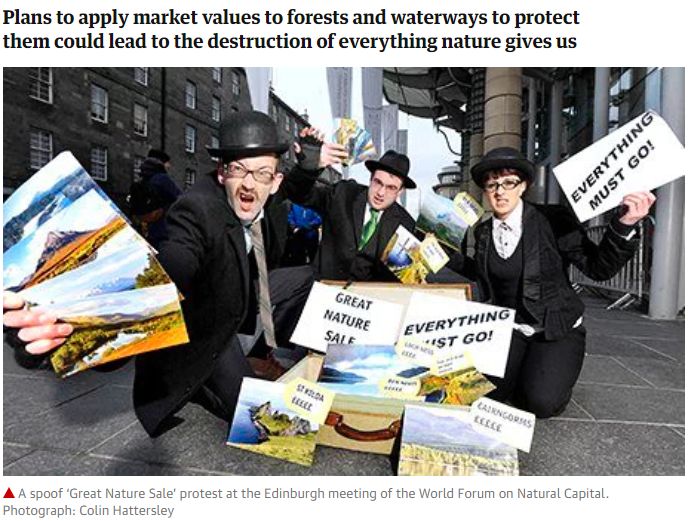
[…] Like advocates of the market for more than 200 years, the drafter of the declaration cannot abide the idea of “the commons” – commonly held resources whose reproduction and use is not subject to the laws of finance. The English enclosures, starting around the 15th century, and the Scottish clearances, from the 18th century, turned most common land in our country into private property, generating the profits that fed the Industrial Revolution.
In its quest for new markets today, finance is again intent on privatising the “global commons”. The first step, as is clearly expressed in the natural capital declaration, is to start thinking of the environment as if it were capital, and to price it accordingly…
George Monbiot article in The Guardian: The UK government wants to put a price on nature – but that will destroy it
Defining Earth’s resources as ‘natural capital’ is morally wrong, intellectually vacuous, and most of all counter-productive…
Final Straw website. NATURAL CAPITAL: TO BUY AND SELL NATURE?
[…] In support of Natural Capital, Jonathan Hughes (Scottish Wildlife Trust) offered the argument that our efforts at nature conservation have thus far, all failed.
He (and the Natural Capital movement in general) propose that it’s time we handed the process over to market-based economics, which requires that we sit down to discuss the “true value” of nature in monetary terms.
Two rebuttals from the panel to this argument seemed particularly on task:
- Invoking a system of Natural Capital is essentially giving up on our efforts, and handing control of the issue over to the banks, big business, and financial markets.
- Once you put a price on something, someone will come up with the money to pay for it. That someone won’t be a local indigenous tribe, it won’t be a polar bear, it won’t be a politician. It will be a company with billions of dollars…
Nature Not For Sale website. New report on the risks of Biodiversity Offsetting
“Nature destruction cannot be compensated for” say NGOs warning communities against biodiversity offsetting
As the world’s forests, lands and waters keep being destroyed, the people whose livelihoods are deeply linked to these places cannot continue their way of life and are often pushed into poverty and hunger. At the same time, the very actors profiting from this destruction have found a way to come across as friends of Nature. How is that possible?
Exposing the absurd logic behind this paradox is the goal of a new booklet published by the NGOs Re:Common and Counter Balance. “Biodiversity Offsetting, a threat to life” is a short publication aimed at explaining what biodiversity offsetting is and how it is deployed by private companies – with the support of governments and the legitimization of some conservation organizations and academics – to greenwash their reputation and continue with business-as-usual…
Bhopal Medical Appeal website. DOW CHEMICAL DISCREDITS WORLD FORUM ON NATURE CAPITAL
[…] The World Forum on Natural Capital is organised by the Scottish Wildlife Trust and backed by other major green groups. Due to take place on November 23-24 in the Edinburgh International Conference Centre, it is expected to attract 500 delegates from more than 35 countries. Other speakers include First Minister Nicola Sturgeon; the Scottish Government’s chief economist, Gary Gillespie; Virgin’s Sir Richard Branson; and David Nussbaum, chief executive of WWF UK.
The aim, according to the conference blurb, is to explore how risks to the world’s £47 trillion worth of natural capital can be “turned into opportunity”. Natural capital is the world’s stocks of natural assets such as geology, soil, air, water and all living things.
A coalition of 14 groups issued a joint statement calling the conference as “a con”. They are calling on organisers to demand companies “come clean on criminal negligence, social injustice and environmental destruction before lecturing on how to make ecosystem protection compatible with corporate profiteering”.
Eurig Scandrett, from Scottish Friends of Bhopal, argued corporations would always put their shareholders first, saying: “Putting a price on nature won’t change that. They will still dump where there’s least cost, which means on the poorest. We should be forcing these companies to be accountable, not helping them profit from greenwash.”
He criticised Dow, which took over the company that ran the Bhopal plant, for trying to evade liability for the disaster. “We will be protesting outside the conference centre and targeting the companies which have been invited to speak,” he said...
Miles King: Natural Capital thinking leads us astray
[This is an excellent article which not only looks at the etymology of terms like ‘capital’ and ‘services’ (which throws very interesting light on the debate) but also provides several very solid objections to the ‘natural capital’ approach. It ends with an account of what happened in Bali when the traditional intrinsic value-based approach to agriculture was supplanted. Fortunately there is a happy ending to this story!]
[…]

Wealth Creation
Natural Capitalism tells us that the current economic system values natural capital at zero, and therefore ignores it. So, if natural capital is suddenly given a value (where previously it had none), then new economic value will be created. We could call it a magic money tree.
The Office for National Statistics tells us that UK natural capital has a value of £750Bn. This may sound like a lot, but London’s residential property is worth twice that.
One of the reasons why London is worth so much is because of Quantitative Easing: The last time the Magic Money Tree was harvested, £435Bn was created out of nothing – and that capital flowed into many places, not least property – here and elsewhere. How much of it flowed offshore, outside jurisdictions, away from tax payments for public good? Nobody knows. The National Crime Agency estimates that nearly £100Bn a year of stolen money is laundered through the UK (and into UK offshore territories), much of it from Russia.
Capital is always flowing to places where it can’ pool’, away from the grasping claws of Regulators and Taxmen. Land in the UK is a good example of this. Farmland (75% of the UK) has become a massive tax shelter. It’s a tax haven, hiding in plain sight. Tens of billions of pounds a year are lost to the Exchequer via this tax haven. Are all those tax reliefs providing any benefit – is Nature, let alone Natural Capital, benefitting from them?
If the value of the UK’s natural capital really was converted into financial capital i.e. real money – where would it flow? One thing we can be sure about – it will not flow back to the “providers” of the “services” i.e. nature itself. It becomes just another asset to be traded, and, like QE, it will contribute to asset price inflation…
Sian Sullivan’s review (titled On ‘Natural Capital’, ‘Fairy Tales’ and Ideology) of Dieter Helm’s Natural Capital: Valuing the Planet.
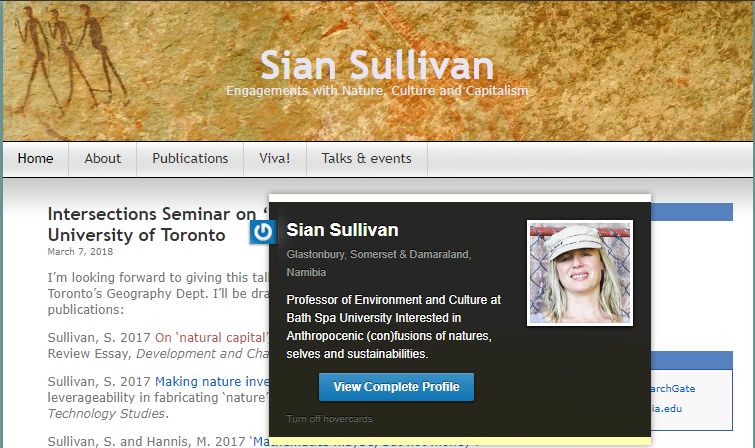
[This is an outstanding and detailed critique of the ‘natural capital’ approach written by an anthropologist with extensive first-hand knowledge of traditional cultures’ approach to the environment. She writes, for example: ‘People [in traditional cultures] arguably perceived themselves as serving […] other-than-human contexts, rather than only vice versa, as forms the basis for much current ecosystem services rhetoric (critiqued in Comberti et al., 2015; Plumwood, 2006; Sullivan, 2009). The unwelcome and often forced displacement of people from these places has reduced their ability to continue such care. It has created loss described as heartbreak, and disaffection through alienation from “their” lands and associated natures, now “valued” instead through global tourism markets.’
Professor Sullivan skewers many tenets of the ‘natural capital’ lobby, including that old and tired ‘tragedy of the commons’ myth and the ‘natural capital aggregate rule’, a notion that would allow, for example, a ‘unit’ of biodiversity in one area to be traded off against another elsewhere. Her essay ends with a very appropriate reference to George Orwell’s 1984. Please read her moving and richly evidenced take-down of the ‘natural capital’ approach.]
[…] I speak from an environmental anthropologist’s concern that diversities are lost in the world-making mission to fashion and fabricate the entire planet as an abstracted plane of (ac)countable, monetizable and potentially substitutable natural capital. In the vein of much natural capital thinking, Helm seems to assume, or perhaps to desire, that we all inhabit a world that is rationalized, experienced and accessed in the same way. This perspective displays little appreciation either of the historical conquests shaping capitalism’s particular truth regime, within which natural capital thinking is set (Chakrabarty, 2000); or of the significant alienations of peoples from natures that established the privileges and enclosures under which captured ‘natural capital assets’ have been depleted (Federici, 2004). I find the relative absence of such contexts alarming. It minimizes and depoliticizes the moral relevance of a world structured by neoliberalism and destabilized by the equality-preventing dominance of rentier capitalism (Piketty, 2014; Storm, 2013; Vitali et al., 2011). Moreover, and as discussed further below, new proposals for investable natural capital conservation seem set to enhance rather than curtail the ability of a few to monopolize property and profits. These concerns are among the reasons why suspicion and resistance have greeted the depoliticized ‘pragmatism’ (Helm, 2014) of incorporating numbers representing ‘natural capital’ into balance sheets accounting for costs and benefits under capitalist economic structures…
Stephen Corry (Director of Survival International), interviewed on Gorilla Radio.
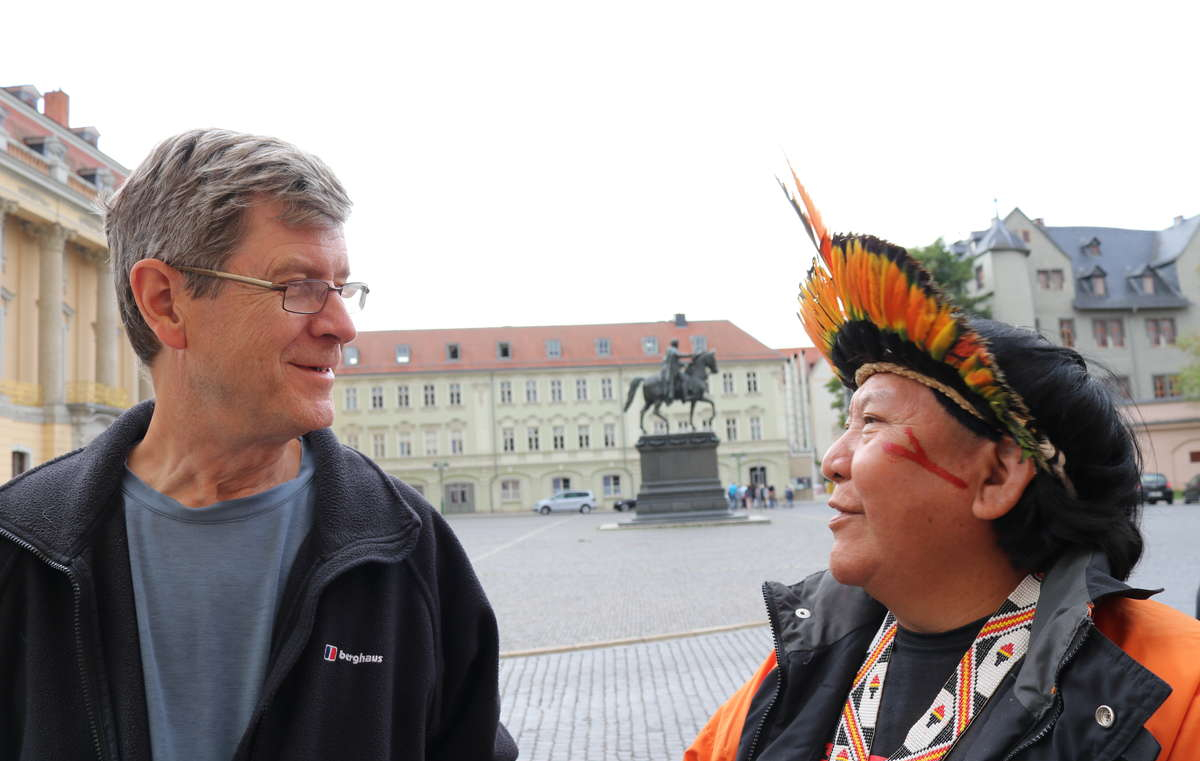
The whole interview is worth listening to (and is highly relevant to the issue of restorative climate justice, by the way) but, from about 36 minutes in, it deals specifically with the issue of ‘…the financialisation of nature, the fiscalisation of nature… the idea that you put a value on nature, which is now the zeitgeist in the conservation industry (and I call it “industry” advisedly). We’re told this is a great thing and this is how the environment’s going to be saved but, in fact, it’s exactly the reverse…’
Please give this compelling interview a listen!
New Economics Foundation article
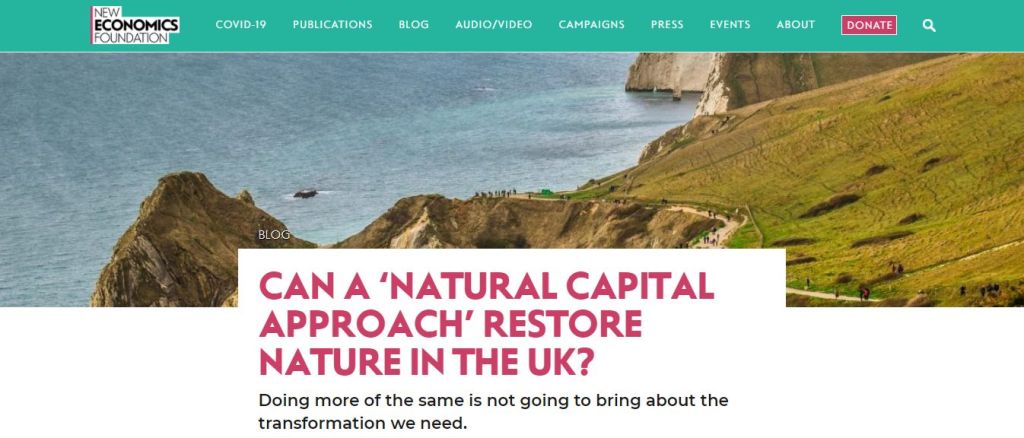
This excellent article summarises the issues, and this is part of the conclusion:
A Natural Capital approach is an example of trying to tackle the ecological crisis by sticking to the status quo, but not only will this fail to restore nature, it will also deepen inequality if we don’t think about distribution, democracy and power. So let’s not use the same debunked thinking that created these problems, to try and solve them. Doing more of the same, or adding natural capital to GDP, is not going to bring about the transformation we need. Instead, we need to change the rules of how our economy operates.
However, I think the author is possibly a bit naïve when it comes to his understanding of the Green New Deal which he outlines in the last paragraph of his article. In fact, as Stephen Corry has made clear, the way this is unfolding is not at all in line with social justice and equity. I direct readers to Earth in Common’s work on what we call ‘restorative climate justice’.
Extract from Resurgence and Ecologist article (Issue 334, Sep/Oct 2022) by Adrienne Buller: Paying the price (Note that this link will only work for subscribers to the magazine.)
Advocates argue that the approach is a realistic one: supporting human welfare in a developing global economy will inevitably involve some displacement of ecosystems or environmental damage, and a natural-capital-based approach enables us to ‘offset’ this according to a principle of no net loss. In other words, any destruction of natural capital or ecosystem services can be offset by a commensurate increase elsewhere, with equivalence determined by the monetary value of the services or assets in question. Economically, this reads as sound stewardship. Ecologically, it is a nonsense, requiring the abstraction of elements of complex ecosystems that we most economically value from the inherently interconnected systems from which they derive.

